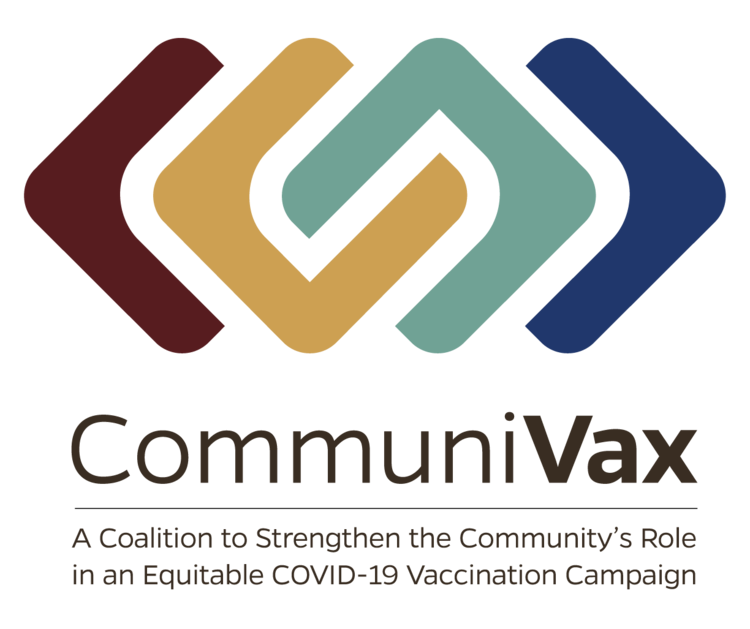
By Elisa J. Sobo (San Diego State University), Diana Schow (Idaho State University), Elizabeth Cartwright (Idaho State University), and Emily K. Brunson (Texas State University) on behalf of the CommuniVax Coalition
The COVID-19 pandemic is being experienced by people—and without insights into individual and group experiences, real solutions are not possible.
Take, for instance, the selection of “Warp Speed” to describe the vaccine development initiative. A common fear in relation to medicine, including vaccines, is that anything developed quickly may not be safe. The use of “Warp Speed” exacerbated this. Had social scientists been consulted during the naming process, a more culturally acceptable title might have been chosen. Additionally social scientists could have advocated for a better explanation of the approval process—including the fact that all pharmaceuticals could be brought to market more quickly if the bureaucratic maze was cleared for them, as it was for the COVID-19 vaccine developers.
Incorporating social science, however, can be difficult. Many academically based social scientists lack the methodological flexibility to design and implement research projects quickly. Funding for applied projects is limited and, from most government sources, too slow. Additionally, the network connections and relationships necessary for implementing real-world change (including partnerships with community members, local and state officials, and national stakeholders) can be hard to come by.
CommuniVax—a national alliance of social scientists, public health experts, and community advocates—provides an example of how these obstacles can be overcome. The purpose of the group is to seek lasting solutions to a serious problem: in the U.S., historically underserved Black, Indigenous, and Latino populations have endured negative health and economic impacts from the COVID-19 pandemic at tragic and disproportionate rates. Led by anthropologists Emily Brunson and Monica Schoch-Spana and driven by the call to quickly translate knowledge into action, consortium investigators have worked hand-in-hand with community members and others to craft both a response to the pandemic and durable solutions to improve health equity moving forward.
As anthropologists and the lead investigators for two of CommuniVax's six local teams (Schow and Cartwright in Idaho; Sobo in California), we have seen how effective an engaged approach can be. By using the methods and theories of social science, which are too often glossed over or taken for granted, our teams were able to offer critical insights into local beliefs and community dynamics that complemented findings from other disciplines, including public health, and provided the basis for specific, locally appropriate interventions.
Both of our teams encountered situations where vaccine site workers or appointment systems automatically asked for a driver's license and/or proof of health insurance—even though all individuals at vaccine sites are entitled to vaccination, regardless of immigration status and/or health insurance coverage. Having an ID and/or an insurance check caused fear and anxiety, particularly among those without legal immigration status. This situation often deterred them from seeking out vaccines for themselves and their family members. Given the lens on power dynamics that social science offers, each team worked variously with local public health personnel, the Mexican Consulate, and/or faith leaders to create clear messaging in English and Spanish so that all individuals, site workers included, would understand the right to be vaccinated.
Another example of an intervention informed by social science is our teams’ leveraging social relationships to advocate for vaccination. In Idaho many young scholars of color were hired and mentored to both build the workforce of the future for the communities served and to provide the local community with trusted messengers. Such trust is crucial because success in promoting vaccination in these communities, which have previously been given little reason to trust the public health and medical systems, relies on culturally appropriate, high-touch, one-on-one interventions executed by community members themselves. Along the same lines, the California team has amplified local promotore (community health worker) programs.
Given these and other socioculturally-attuned interventions, our areas in California and Idaho have relatively impressive vaccine coverage rates. Our work has shown that with appropriate access and locally relevant interventions even the most marginalized groups can be proactive in regard to their health.
For communities that continue to be wary of COVID-19 vaccination—including those that are predominantly white—our efforts, and those of CommuniVax as a whole, can provide an example of what works: engaging insiders to illuminate local perceptions and barriers/facilitators to health care, helping technical experts to understand those ideas and experiences, and facilitating the co-development of more effective public health interventions.
Why social science? Because leveraging the sociocultural dimensions of health knowledge, not a technical focus, is what will move the needle on vaccine uptake.
ELISA J. SOBO is a Professor and Chair of Anthropology at San Diego State University. DIANA SCHOW is a Assistant Professor of Community and Public Health at Idaho State University and Executive Director of the Southeast Idaho Area Health Education Center. ELIZABETH CARTWRIGHT is Professor of Anthropology at Idaho State University. EMILY K. BRUNSON is an Associate Professor and Associate Chair of Anthropology at Texas State University and CommuniVax Co-Principal Investigator.
This article was contributed on behalf of the CommuniVax Coalition.